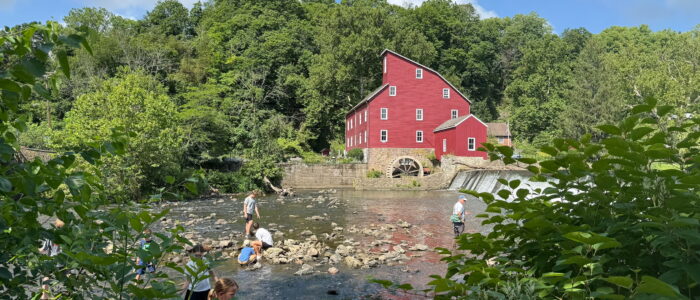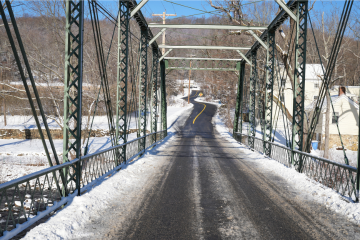Charting a Course for Clean Water and Resilient Communities
 For over sixty-five years, Raritan Headwaters Association (RHA) has been a steadfast guardian of the vital clean water sources that nourish the Upper Raritan region and flow downstream, connecting to the Lower Raritan River, Raritan Bay, and ultimately the Atlantic Ocean. Since 1959, RHA has been at the forefront of protecting water quality, preserving critical lands, enhancing opportunities for outdoor recreation, educating residents and leaders, and advocating for sound land use policies essential to the ecological health of our forests and riparian corridors.
For over sixty-five years, Raritan Headwaters Association (RHA) has been a steadfast guardian of the vital clean water sources that nourish the Upper Raritan region and flow downstream, connecting to the Lower Raritan River, Raritan Bay, and ultimately the Atlantic Ocean. Since 1959, RHA has been at the forefront of protecting water quality, preserving critical lands, enhancing opportunities for outdoor recreation, educating residents and leaders, and advocating for sound land use policies essential to the ecological health of our forests and riparian corridors.
Today, our world faces accelerating environmental shifts, bringing evolving stresses to our precious ecosystems. Across New Jersey, conservation non-profits are called to adapt, reassessing strategies to ensure maximum effectiveness and broader community engagement in safeguarding our natural resources. Climate change intensifies its negative impacts on water quality through direct and indirect pressures on ecosystems, including declining biodiversity, reduced forest cover, and increased pollution from various sources. Simultaneously, there is a growing imperative for equitable access to nature and for empowering diverse communities in the crucial work of protecting clean water. To meet these challenges head-on and ensure the high-quality data and organizational capacity needed to address persistent and emerging threats, the need for sustainable funding is more critical than ever.
The urgent call to protect the environmental health of the watershed, coupled with the undeniable dependence of residents on these resources for their quality of life, underscores the critical importance of decisive action. This 2025-2027 Strategic Plan is our bold roadmap, outlining clear, attainable goals and impactful strategies designed to confront these pressing challenges and powerfully advance RHA’s enduring mission. RHA is intensifying its focus on improving water quality through expanded stream restoration initiatives and by proactively addressing emerging contaminants like PFAS that pose risks to the watershed’s health. The plan also deepens our commitment to providing greater access to nature, with a deliberate emphasis on creating inclusive outdoor experiences for individuals of all abilities and ensuring everyone feels a genuine sense of belonging in natural spaces. To ensure the long-term sustainability of our vital mission, RHA will forge innovative funding strategies, cultivating expanded partnerships with private donors, corporations, and foundations to fuel our critical programs. Building climate resilience is a core priority, leveraging natural solutions such as green infrastructure, reforestation, and wetland protection as essential tools to mitigate climate impacts on our communities. RHA will continue to be a powerful voice, advocating for policies that prevent unsustainable development and championing land use decisions that prioritize ecological integrity. To further safeguard water quality and critical habitats, the organization is accelerating land preservation efforts and actively collaborating with stakeholders to expand protected open spaces throughout the watershed. By vigorously pursuing these priorities, RHA will not only deliver on its foundational commitment but also build a more resilient, equitable, and vibrant future for the Raritan Headwaters region and the communities who depend on its clean water.




